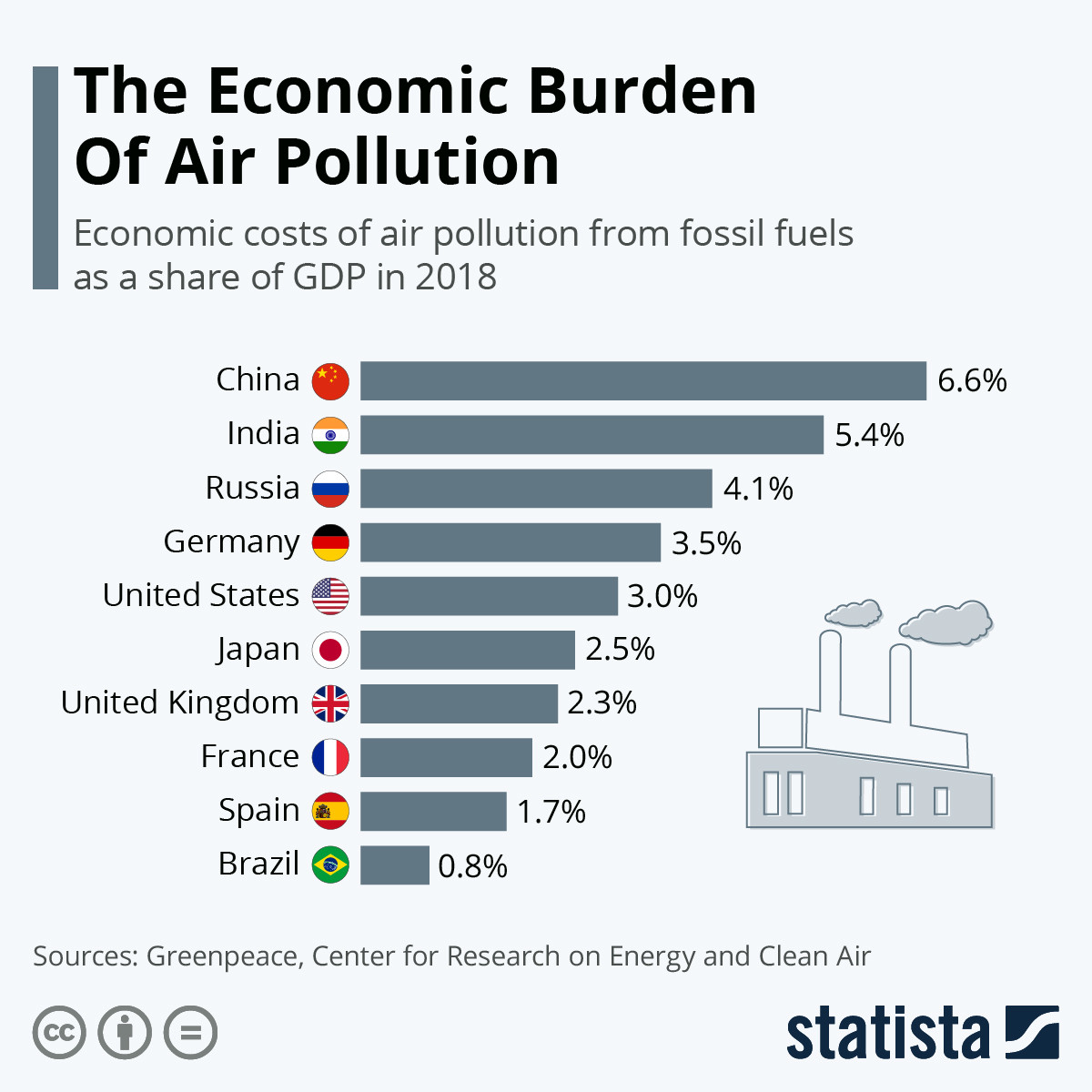This is the global economic cost of air pollution

It's bad for more than just your health and the planet. Image: REUTERS/Dado Ruvic

Get involved with our crowdsourced digital platform to deliver impact at scale
Stay up to date:
Future of the Environment
- Greenpeace research looks at the economic impact of air pollution.
- In China, this is estimated at $900 billion a year. For the US, the figure is $600 billion.
Greenpeace Southeast Asia and the Centre for Research on Energy and Clean Air have released a new report about the costs of air pollution from fossil fuels, both human and economic. Burning gas, coal and oil results in three times as many deaths as road traffic accidents worldwide and it is estimated that air pollution has a $2.9 trillion economic cost, equating to 3.3 percent of the world's GDP. In 2018, the report estimates that it was linked to 4.5 million deaths with PM2.5 pollution also responsible for 1.8 billion days of work absence, 4 million new cases of child asthma and 2 million preterm births.
It can have an impact on the economy in many forms such as higher rates of asthma, diabetes or chronic respiratory diseases leading to reduced ability to work and lower participation rates in the labor force. Children susceptible to asthma attacks also miss school days, impacting their learning while healthcare requirements can result in their guardians also taking extra time off work. According to the report, disability from chronic diseases cost the world's economy $200 billion in 2018, with sick leave and preterm births costing $100 billion and $90 billion respectively.
The total annual cost of air pollution in China is estimated to be $900 billion each year with costs in the U.S. running to $600 billion annually. Indian cities have scored unfavorably in air pollution indexes for years and the issue costs the country $150 billion per year on average. In 2018, the cost of dirty air equated to 6.6 percent of Chinese GDP, 5.4 percent of India's GDP and 3 percent of U.S. GDP.
Don't miss any update on this topic
Create a free account and access your personalized content collection with our latest publications and analyses.
License and Republishing
World Economic Forum articles may be republished in accordance with the Creative Commons Attribution-NonCommercial-NoDerivatives 4.0 International Public License, and in accordance with our Terms of Use.
The views expressed in this article are those of the author alone and not the World Economic Forum.
Related topics:
The Agenda Weekly
A weekly update of the most important issues driving the global agenda
You can unsubscribe at any time using the link in our emails. For more details, review our privacy policy.
More on Nature and BiodiversitySee all
Cristen Hemingway Jaynes
April 30, 2024
Robin Pomeroy and Linda Lacina
April 29, 2024
Greg Goodwin and John Stackhouse
April 29, 2024
Diego Vincenzi
April 29, 2024
Jan Rosenow, Cristina Oyón, Natalia Zabolotnikova and Xabier Mugarza Zorriqueta
April 29, 2024








